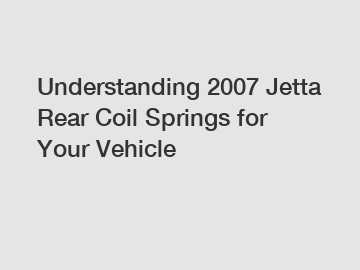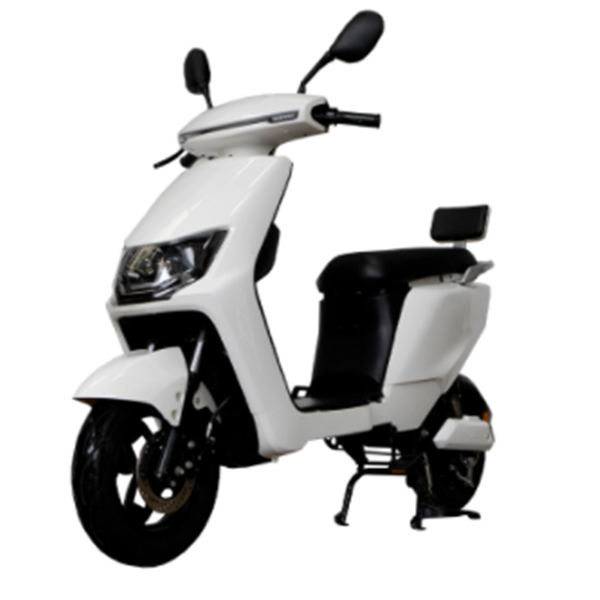10 Questions You Should Know about Custom Linear Dampers
Link to Teao
1. What are Custom Linear Dampers?
Custom linear dampers are specialized devices designed to control motion and reduce vibrations in various applications, ranging from automotive to manufacturing. These dampers utilize a linear mechanism to absorb energy and dampen oscillations, enhancing the overall performance and longevity of machinery.2. How Do Custom Linear Dampers Work?
These dampers typically operate using a piston moving through a cylinder filled with hydraulic fluid or gas. The fluid's resistance against the piston creates a damping effect, which smooths out motion and minimizes shocks experienced by the system. Custom designs allow for precise tuning to meet specific operational requirements.3. What Applications Utilize Custom Linear Dampers?
Various industries employ custom linear dampers, including:- **Automotive**: For suspension systems to improve ride comfort.- **Aerospace**: To reduce vibrations in aircraft components.- **Industrial Machinery**: In conveyor systems to reduce wear and tear.- **Furniture**: To enhance soft-close mechanisms in cabinetry.4. Why Choose Custom Over Standard Dampers?
Custom dampers are designed to meet specific requirements, whereas standard models may not fit particular needs. Customization allows for:- Tailored damping characteristics.- Enhanced performance in unique applications.- Improved durability and efficiency.5. What Factors Influence the Design of Custom Linear Dampers?
Key factors include:- **Load Requirements**: The weight and speed of the application dictate damping force.- **Environmental Conditions**: Temperature and exposure to elements can influence material selection.- **Space Constraints**: Size and layout of the equipment determine the damper design.6. How Are Custom Linear Dampers Tested?
Testing involves several methods:- **Static Testing**: Assessing performance under fixed loads.- **Dynamic Testing**: Evaluating damping under varying speeds and loads.- **Environmental Testing**: Checking performance in extreme conditions to ensure reliability.7. What Materials Are Used in Custom Linear Dampers?
Common materials include:- **Aluminum**: Lightweight and corrosion-resistant.- **Steel**: Offers strength and durability.- **Polymeric Seals**: Used to ensure proper fluid retention and reduce wear.8. How Do I Select the Right Custom Linear Damper?
To select the appropriate damper:- **Identify Requirements**: Understand the load and speed characteristics.- **Consult Experts**: Engage with manufacturers for guidance based on your application.- **Consider Testing**: Request prototypes and perform testing to evaluate performance.9. What Maintenance is Required for Custom Linear Dampers?
Regular maintenance ensures optimal performance:- **Inspection**: Check for leaks, wear, and damage.- **Fluid Replacement**: If applicable, replace hydraulic fluid periodically.- **Cleaning**: Ensure the exterior is free from debris and contaminants.10. What is the Expected Lifespan of Custom Linear Dampers?
The lifespan varies based on application and conditions. Generally, with proper maintenance, custom linear dampers can last several years, even decades. Factors such as load intensity, usage frequency, and environmental exposure significantly impact longevity.Click here to get more.
Featured content:The Benefits of Upgrading Your Berlingo Front Spring
Upgrade Your Ride: 1955 Chevy Front Coil Springs Guide
How Does the 2025 White BYD e2 Perform?
How to Choose a Red BAIC MOTOR X10 PHEV Exporter?
Upgrade Your 1955 Chevy Front Coil Springs in 2024
2003 Dodge Ram 1500 Coil Springs: OEM vs. Aftermarket Options
How to Choose the Perfect HYUNDAI Coil Spring for Your Vehicle?
For more information, please visit Linear dampers custom.
Featured content:How to Replace 2010 VW Jetta Rear Coil Spring
VOYAH Chasing Light vs Traditional EV Services: A Detailed Comparison
2001 BMW 325i Rear Coil Springs: OEM vs Aftermarket Options
How to Choose 8.5x
How to Choose 55 Chevy Front Coil Springs?
Are Astra H Coil Springs Causing Your Suspension Problems?
Understanding Solid Tires for Xiaomi Services: Buyer Insights
Comments
- 0
Related Articles









